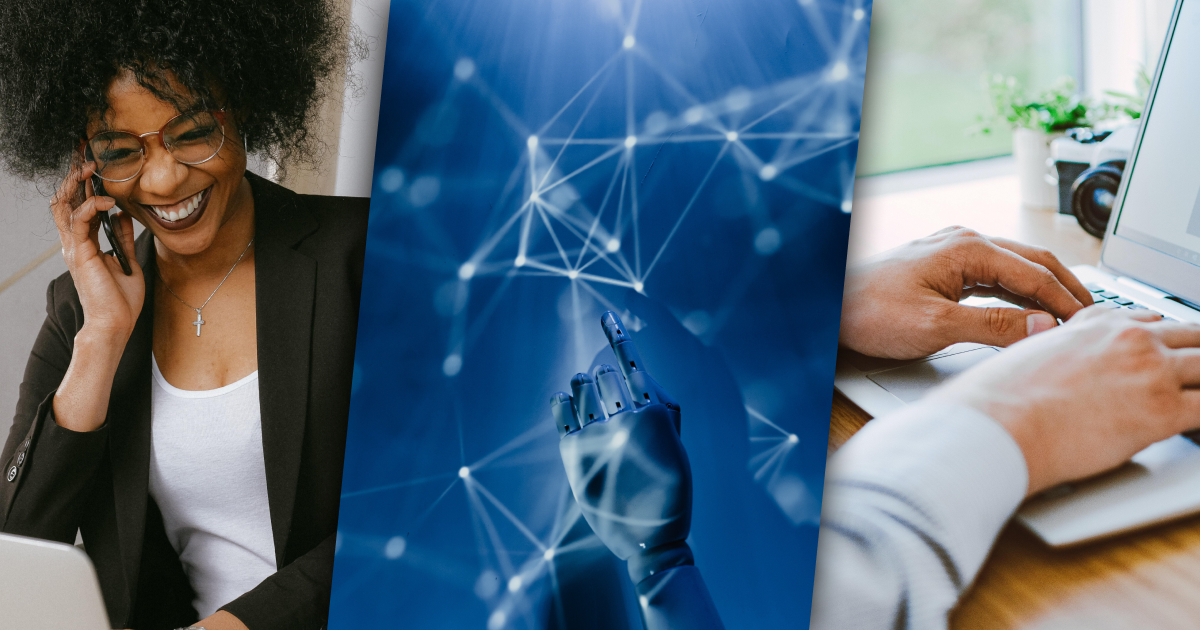
Welcome to the world of event planning, where creativity meets technology and innovation knows no bounds! In this fast-paced industry, staying ahead of the curve is essential, and one groundbreaking tool that is revolutionizing the way events are organized and executed is artificial intelligence (AI). With its incredible capabilities and endless possibilities, AI has become a game-changer for event planners around the globe.
In this blog post, we will delve into the exciting realm of AI in event planning. We will explore how this cutting-edge technology is not only enhancing accessibility but also fostering inclusivity like never before. From creating personalized experiences to breaking down barriers for individuals with disabilities, AI opens up a whole new world of opportunities in designing unforgettable events.
So fasten your seatbelts as we take you on a journey through the incredible ways that AI is transforming event planning. Get ready to be inspired by real-life examples, discover advancements in AI technologies used for events, and dive into some thought-provoking discussions surrounding its implementation. The future of event planning awaits us – let’s embrace it together!
The Role of AI in Creating Accessible Events
AI technology plays a crucial role in creating accessible events by providing innovative solutions to overcome various barriers. One of the key challenges faced in event planning is ensuring that individuals with disabilities can fully participate and engage. AI-powered tools have the potential to transform this aspect of event management.
For instance, AI can assist in making physical spaces more accessible for people with mobility impairments. Through sensor-based technologies and machine learning algorithms, AI can analyze data on crowd flow and movement patterns to optimize the layout of an event venue. This includes designing wheelchair-friendly pathways, strategically placing ramps or elevators, and ensuring adequate seating arrangements for individuals with different accessibility needs.
AI can enhance communication accessibility by implementing real-time language translation capabilities. Language barriers often pose significant challenges at international events where participants may speak different languages. With AI-driven language translation tools, attendees can easily communicate with each other using their preferred language through voice recognition and instant translation features.
AI-powered virtual assistants can provide personalized assistance to attendees with disabilities during events. These virtual assistants can offer information about session schedules, directions within the venue or even help register for specific accommodations such as sign language interpreters or Braille materials.
AI also has potential applications in improving accessibility for individuals who are visually impaired or blind. Computer vision technology combined with audio feedback systems allows real-time identification of objects and surroundings through cameras installed throughout the venue. This enables users to navigate independently without relying solely on human assistance.
By harnessing the power of artificial intelligence, event planners have greater opportunities to create inclusive experiences for all attendees regardless of their abilities or limitations. However, it is important to consider ethical implications and ensure that privacy concerns are addressed when implementing these technologies.

Enhancing Inclusivity Through AI Technology
AI technology has the potential to revolutionize the way we plan and organize events, making them more inclusive and accessible for all attendees. By harnessing the power of machine learning algorithms and data analysis, AI can help event planners identify barriers that may hinder participation for individuals with disabilities or other accessibility needs.
One way in which AI is enhancing inclusivity is through real-time language translation. Language barriers can often exclude individuals from fully participating in an event. However, with AI-powered translation tools, language can no longer be a barrier. These tools can analyze speech patterns and translate conversations on the spot, allowing people to communicate effectively regardless of their native language.
Facial recognition technology powered by AI is being used to assist individuals with visual impairments or who have difficulty recognizing faces. This technology uses facial recognition algorithms to identify people and provide information about them in real-time through auditory cues or haptic feedback.
AI chatbots are becoming increasingly popular at events as they offer personalized assistance to attendees. These virtual assistants use natural language processing algorithms to understand questions and provide relevant information instantly. They can answer queries about session schedules, venue layouts, parking facilities, dietary restrictions – helping attendees navigate through the event smoothly.
To ensure physical accessibility at venues, AI-powered sensors are being deployed to monitor crowd flow in real-time. By analyzing data collected from these sensors using machine learning techniques, event planners can optimize traffic flow within venues for individuals using mobility aids such as wheelchairs or crutches.
Real-Life Examples of AI in Action
- Improving attendee experience: One prominent example of AI in event planning is the use of chatbots to enhance the attendee experience. These intelligent virtual assistants can provide instant and personalized assistance, answering questions about schedules, logistics, and even dietary restrictions. By utilizing natural language processing algorithms, chatbots ensure prompt responses and eliminate the need for attendees to wait in long queues for assistance.
- Enhancing accessibility: Another notable case study involves the integration of AI-powered captioning systems during live presentations or panel discussions. Such technology utilizes speech recognition algorithms to transcribe spoken words into text in real-time, making events more accessible to individuals with hearing impairments. This innovation not only enhances inclusivity but also eliminates the need for human transcription services.
- Streamlining event logistics: AI can significantly streamline event logistics by automating repetitive tasks such as registration management and ticketing processes. Event organizers can leverage machine learning algorithms to analyze data from previous events, identify patterns, and make informed decisions regarding venue selection, catering options, and optimal scheduling.
- Personalized recommendations: With AI-enabled recommendation engines integrated into event platforms or mobile apps, attendees can receive tailored suggestions on sessions or networking opportunities based on their interests and preferences. This level of personalization ensures that participants have a more enriching experience while maximizing their time at an event.
- Enhanced security measures: In recent years, there has been a rise in using facial recognition technology powered by artificial intelligence for enhancing security at events. By scanning faces against databases of known threats or individuals banned from attending an event due to misconduct or safety concerns, organizers can quickly identify potential risks and take appropriate actions before they escalate.
These real-life examples demonstrate how AI has revolutionized various aspects of event planning – from improving attendee experiences through chatbots and personalized recommendations to enhancing accessibility through captioning systems for those with hearing impairments.
Advancements and Innovations in AI for Event Planning
AI technology has made significant advancements in recent years, revolutionizing various industries, including event planning. With the ability to analyze vast amounts of data and make predictions based on patterns, AI is transforming the way events are organized and executed.
One key advancement is the use of chatbots powered by artificial intelligence. These virtual assistants can handle customer inquiries, provide instant responses to frequently asked questions, and even schedule appointments or registrations. This not only improves efficiency but also enhances attendee experience by providing real-time support.
Another innovation is facial recognition technology which enables seamless check-in processes at events. Attendees no longer need to fumble with paper tickets or badges; instead, their faces serve as a digital pass granting them access to different areas within an event venue. This eliminates long queues and ensures smooth entry for all attendees.
AI algorithms can now analyze social media data to determine attendee preferences and interests. By monitoring hashtags and engagements related to an event or brand, organizers can gain valuable insights into what participants expect from their experience. This allows for personalized marketing campaigns tailored specifically to individual attendees’ needs.
AI-powered platforms have emerged that assist in venue selection by analyzing factors such as location accessibility, parking availability, public transportation options, and more. By leveraging this technology during the planning phase,
organizers can identify venues that meet accessibility requirements ensuring inclusivity for all attendees.
Virtual reality (VR) integration into events offers immersive experiences without physical limitations.
Attendees can explore venues virtually before attending physical events or participate remotely through VR headsets. This opens up new possibilities for individuals who may face mobility challenges or geographical constraints when attending traditional events.
Challenges and Controversies Surrounding AI Implementation in Events
Implementing AI technology in event planning is not without its challenges and controversies. One major concern is the potential loss of human touch and personal connection that comes with relying heavily on automation. Some argue that events are meant to be a gathering of people, where human interaction and emotional connections play a crucial role.
Another challenge lies in the ethical implications of using AI algorithms to collect and analyze data about attendees. Privacy concerns arise when sensitive personal information is collected without explicit consent or used for purposes beyond what was originally intended.
There may be resistance from event organizers who fear job displacement as AI takes over certain tasks traditionally performed by humans. Skepticism around reliability and accuracy also persists, as some worry about technical glitches or biases within AI systems.
There is ongoing debate regarding inclusivity when implementing AI in events. While these technologies can enhance accessibility for individuals with disabilities, they need to be carefully designed to ensure they don’t inadvertently exclude certain groups or perpetuate existing inequalities.
While the benefits of incorporating AI into event planning are evident, addressing these challenges and controversies requires thoughtful consideration and responsible implementation to strike a balance between efficiency and maintaining the essence of human connection at events.
The Future of Event Planning with AI
As we have explored throughout this article, the integration of AI technology in event planning has immense potential to improve accessibility and inclusion. From automating tasks and streamlining processes to providing personalized experiences for attendees, AI is revolutionizing the way events are organized and executed.
The role of AI in creating accessible events cannot be underestimated. With its ability to analyze data, predict patterns, and make real-time adjustments, AI can help event planners identify barriers that may hinder participation for individuals with disabilities. By leveraging this technology, organizers can proactively address these challenges and ensure equal access for all attendees.
Enhancing inclusivity through AI technology opens up new possibilities for engaging diverse audiences. Through machine learning algorithms and natural language processing capabilities, event platforms powered by AI can provide tailored recommendations based on individual preferences and interests. This personalization not only enhances attendee satisfaction but also fosters a sense of belonging within the event community.
Real-life case studies demonstrate how organizations have successfully utilized AI to create inclusive events. Whether it’s using chatbots as virtual assistants or implementing facial recognition systems for seamless check-ins, these examples showcase the practical applications of AI in overcoming traditional limitations.
Looking ahead, advancements and innovations in AI will continue to shape the future of event planning. As technology evolves further, we can expect even more sophisticated tools like intelligent scheduling assistants capable of optimizing time slots based on attendee availability or sentiment analysis algorithms that gauge audience reactions during presentations.
It is crucial to acknowledge the challenges and controversies surrounding the implementation of AI in events. Privacy concerns regarding data collection and usage must be addressed transparently while ensuring compliance with relevant regulations. Additionally, there remains a need for ongoing human oversight to prevent biases inherent within algorithms from perpetuating inequality inadvertently.

